
Experts discuss the role of pharmacists in CAR T-cell and gene therapy at the 2026 ASTCT Tandem Meeting in Salt Lake City.

Experts discuss the role of pharmacists in CAR T-cell and gene therapy at the 2026 ASTCT Tandem Meeting in Salt Lake City.

Pharmacists enhance health care delivery by managing medication refills, addressing drug shortages, and supporting chronic disease management.

Explore the evolving landscape of health care market access, cash models, and innovative pharmacy distribution strategies shaping the future of pharmaceuticals.
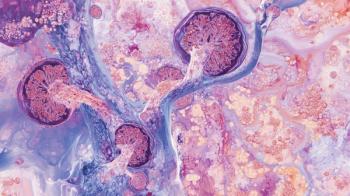
New research highlights the efficacy and safety of HRS-1780, an investigational nonsteroidal MRA, in treating chronic kidney disease (CKD).

Sacituzumab govitecan shows promising overall survival trends in HR+/HER2− metastatic breast cancer, despite not meeting primary progression-free survival goals.

Sarah J. Billups, PharmD, highlights the disconnect between medication adherence metrics and actual patient outcomes, urging a reevaluation of adherence measures in health care.

Prateek Bhatia discusses optimizing staffing and workflows in infusion centers to enhance patient care and reduce delays in treatment.

IV compounding robotics and next-generation dispensing technology enhance pharmacy workflows, boost staff engagement, and improve patient care outcomes.


Ribociclib shows higher early treatment modifications than palbociclib in HR+/HER2– breast cancer, emphasizing the need for proactive toxicity management.
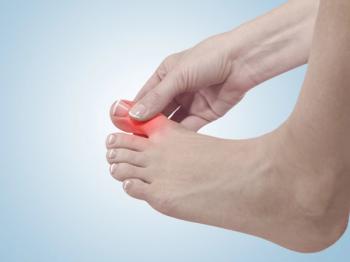
Research highlights the critical link between chronic kidney disease (CKD) and uncontrolled gout, emphasizing a need for enhanced awareness and treatment strategies.
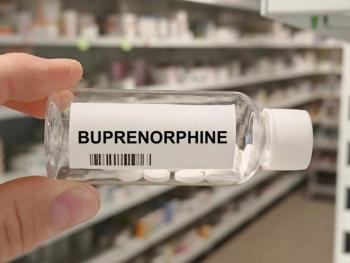
Pharmacists are crucial in combating opioid use disorder, enhancing treatment options, and reducing drug overdose deaths linked to fentanyl.
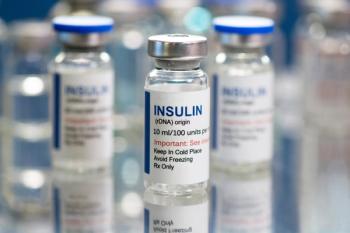
Clinicians learn to optimize type 2 diabetes treatment using automated insulin delivery data, enhancing patient safety and education for effective management.

Experts discuss innovations in medication-use processes at the ASHP Midyear Meeting, highlighting trends in acute and ambulatory care for pharmacy leaders.

Patients learn the importance of understanding treatment-related skin issues, recognizing symptoms, and adopting gentle skincare practices for better management.
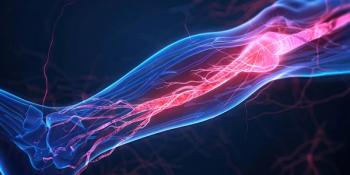
A pharmacist-led deep vein thrombosis (DVT) clinic revolutionizes outpatient care, reducing emergency visits and costs while enhancing medication adherence through collaborative practices.

Prateek Bhatia discusses optimizing infusion operations through technology, data analytics, and patient journey understanding at the ASHP Midyear Meeting.

Research reveals that isatuximab on-body injector shows consistent safety and efficacy across various body weight groups in multiple myeloma treatment.

SABCS 2025 showcases breakthroughs in breast cancer therapy, emphasizing novel therapies and precision medicine to enhance patient outcomes.

Pivotal FDA approvals in breast cancer treatment focused on precision medicine and innovative therapies in 2025.

Pharmacists enhance oncology care by guiding younger patients through precision diagnostics like ctDNA MRD testing, driving innovation in cancer treatment.
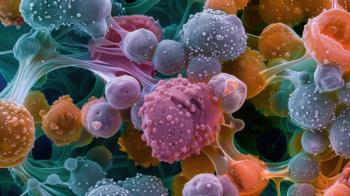
Exploratory findings from the MONALEESA-3 trial presented at SABCS 2025 show ribociclib plus fulvestrant significantly enhances survival in ILC.

Discover how antibody drug conjugates (ADCs) are transforming treatment for HER2-positive breast cancer with brain metastases at SABCS 2025.

SABCS showcases emerging trends in breast cancer treatment, emphasizing pharmacists' vital role in medication management and patient care strategies.

Experts explore the evolving role of HER2- and TROP2-targeted therapies in breast cancer treatment at SABCS 2025, highlighting ADC advancements.

Explore the pleiotropic effects of GLP-1 agents in oncology care, highlighting their benefits and considerations for pharmacists and clinicians.

Explore the HER2CLIMB-05 study's findings on tucatinib's impact on breast cancer progression-free survival, enhancing treatment options for pharmacists.

Latest findings presented at SABCS 2025 support trastuzumab deruxtecan's effectiveness and safety in treating HER2-positive breast cancer.

New research highlights the benefits of adding isatuximab to standard therapy for newly diagnosed multiple myeloma (NDMM), improving patient outcomes and quality of life.

Diana Isaacs, PharmD, highlights evolving criteria for insulin pump therapy in type 2 diabetes.